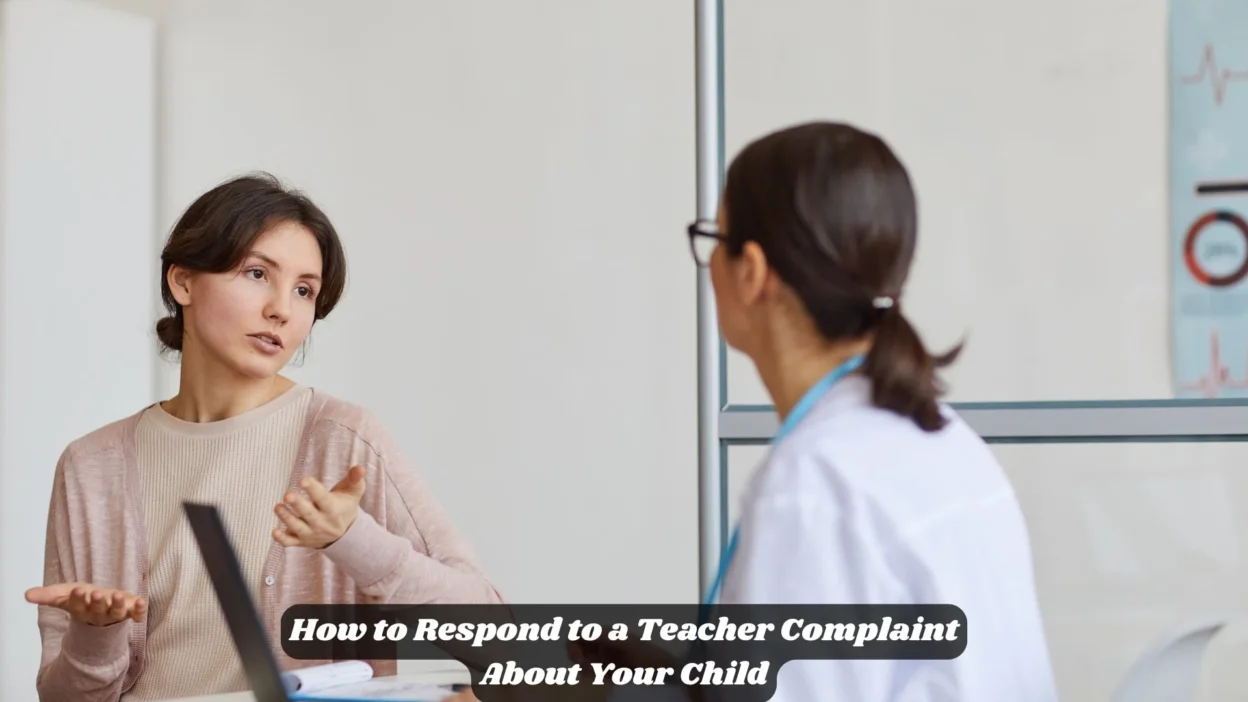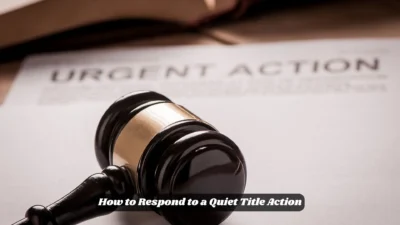If you’ve ever received a message or a call from your child’s teacher expressing concern, you’re not alone.
Parents often search for the right words to respond without sounding defensive or dismissive.
You’re likely here looking for a better way to say how to respond to a teacher complaint about your child. And luckily, your search ends here.
Different situations call for different responses. Whether it’s a formal meeting with the school principal or a casual chat with a teacher after class, the way you reply can make all the difference.
Below, you’ll find clear, respectful, and effective ways to respond to teacher complaints in a variety of tones—formal, informal, idiomatic, and professional.
Sorry Generator
Formal Ways to Say How to Respond to a Teacher Complaint About Your Child
Use these when speaking with school officials, during meetings, or in written letters.
- I appreciate you bringing this to my attention
- I take your concerns seriously
- Thank you for your time and dedication
- I would like to understand more about the situation
- Please know I am committed to addressing this
- I value your perspective and feedback
- We will work on this at home
- My child and I will have a serious talk
- Your observations are important to me
- I am open to scheduling a meeting
- I’d like to discuss this further in person
- Let’s work together to support my child
- I recognize the importance of this matter
- I’ll take the necessary steps moving forward
- I will speak to my child and get back to you
- Thank you for your professionalism
- I’m committed to resolving this
- I understand the concern and want to help
- I am grateful for your involvement
- I will reflect on what you’ve shared
- I’ll be sure to monitor their progress
- Let’s maintain an open line of communication
- Please keep me updated on any changes
- We take these concerns very seriously
- I will follow up accordingly
- Your feedback helps us grow
- Thank you for guiding my child
- I want to ensure improvement moving forward
- We’ll work toward a positive solution
- Your patience is appreciated
Informal Ways to Say How to Respond to a Teacher Complaint About Your Child
These are great for texts, quick chats, or relaxed parent-teacher conversations.
- Thanks for letting me know
- I’ll talk to them tonight
- I had no idea, thanks for telling me
- We’ll take care of it
- Got it, I’ll handle it
- I’ll check in with them about this
- That’s good to know
- I’ll make sure we talk about this at home
- Let me know if it happens again
- Thanks for keeping an eye on them
- I’ll keep an eye out too
- That doesn’t sound like them, but I’ll look into it
- I’ll ask what’s going on
- I’m glad you said something
- We’ll figure it out
- I appreciate the heads-up
- I’ll take care of it on my end
- Thanks for the update
- I’ll talk to them after school
- I’ll make sure this gets fixed
- I’ll work with them on this
- Keep me in the loop
- I’m on it
- I didn’t know that, thanks
- I’ll back you up at home
- Thanks for reaching out
- We’ll work on it together
- That’s helpful to know
- Appreciate you letting me know
- I’ll see what’s going on
Idiomatic Ways to Say How to Respond to a Teacher Complaint About Your Child
These expressions help show empathy, support, and commitment in a conversational way.
- I’ll nip this in the bud
- Time for a heart-to-heart
- We’ll get to the bottom of this
- I’ll have a word with them
- I hear where you’re coming from
- I’ll set the record straight
- That won’t fly at home either
- We’ll turn things around
- I won’t sweep this under the rug
- Let’s stay on the same page
- I’ll keep my ear to the ground
- Thanks for the heads-up
- I’ll lay down the law if needed
- I’ll get a handle on it
- I’ll touch base with you later
- This won’t fall through the cracks
- I’ll call them out on it
- I’ll bring them back in line
- I’ll keep a close eye from now on
- No stone will be left unturned
- We’ll tackle this head-on
- That’s not going to slide
- Let me pick their brain
- I’ll light a fire under them
- We’ll keep the ball rolling
- I’ll have a sit-down with them
- Time to pull up their socks
- I’m not turning a blind eye
- I’ll take the reins at home
- We’ll iron this out together
Professional Ways to Say How to Respond to a Teacher Complaint About Your Child
Perfect for emails, formal discussions, or school reports where diplomacy is key.
- Thank you for addressing this promptly
- I will ensure appropriate follow-up at home
- I understand the significance of this behavior
- I would like to work with you on a plan
- I’ll be discussing this at length with my child
- I value your role in shaping student behavior
- Your feedback is instrumental in our approach
- Please know this is not being taken lightly
- I will investigate the matter thoroughly
- Collaboration is key, and I’m here for it
- I appreciate your continuous support
- I am committed to finding a solution
- I’d like to schedule a follow-up meeting
- Thank you for your ongoing communication
- Let’s maintain a constructive dialogue
- Your concerns have been heard and understood
- I will reflect on your insights carefully
- This will be addressed with urgency
- I will inform you of any progress at home
- Our shared goal is a positive outcome
- I’ll keep a log of home behavior moving forward
- I am reviewing this with great attention
- Your observations are deeply valued
- I’ll share this feedback with other caregivers as well
- I will engage with school resources if needed
- Thank you for investing your time in this
- I recognize the need for correction
- Let’s move forward with a united approach
- I am grateful for your dedication to my child’s success
- I take this as a learning opportunity for us all
Conclusion
Responding to a teacher complaint about your child doesn’t have to feel overwhelming or awkward. Choosing the right phrase helps show that you’re a caring and responsible parent. The way you speak can open doors to collaboration instead of conflict. By using formal, casual, idiomatic, or professional ways to reply, you create better communication and help your child grow from the experience. Practice these responses, and you’ll soon feel confident, clear, and calm in every school conversation.

James Smith is an acclaimed fiction writer and storyteller whose work explores the human condition through a lens of emotional depth and sharp observation. Known for his captivating prose and unforgettable characters, James has carved a unique space in contemporary literature.
With a background in English Literature and over a decade of writing experience, his stories have been featured in numerous literary magazines and anthologies. James is passionate about mentoring emerging writers and frequently speaks at literary events and creative writing workshops.
Selected Works:
-
Beneath the Quiet Sky
-
The Echoes We Leave Behind
-
Fragments of a Forgotten Summer




